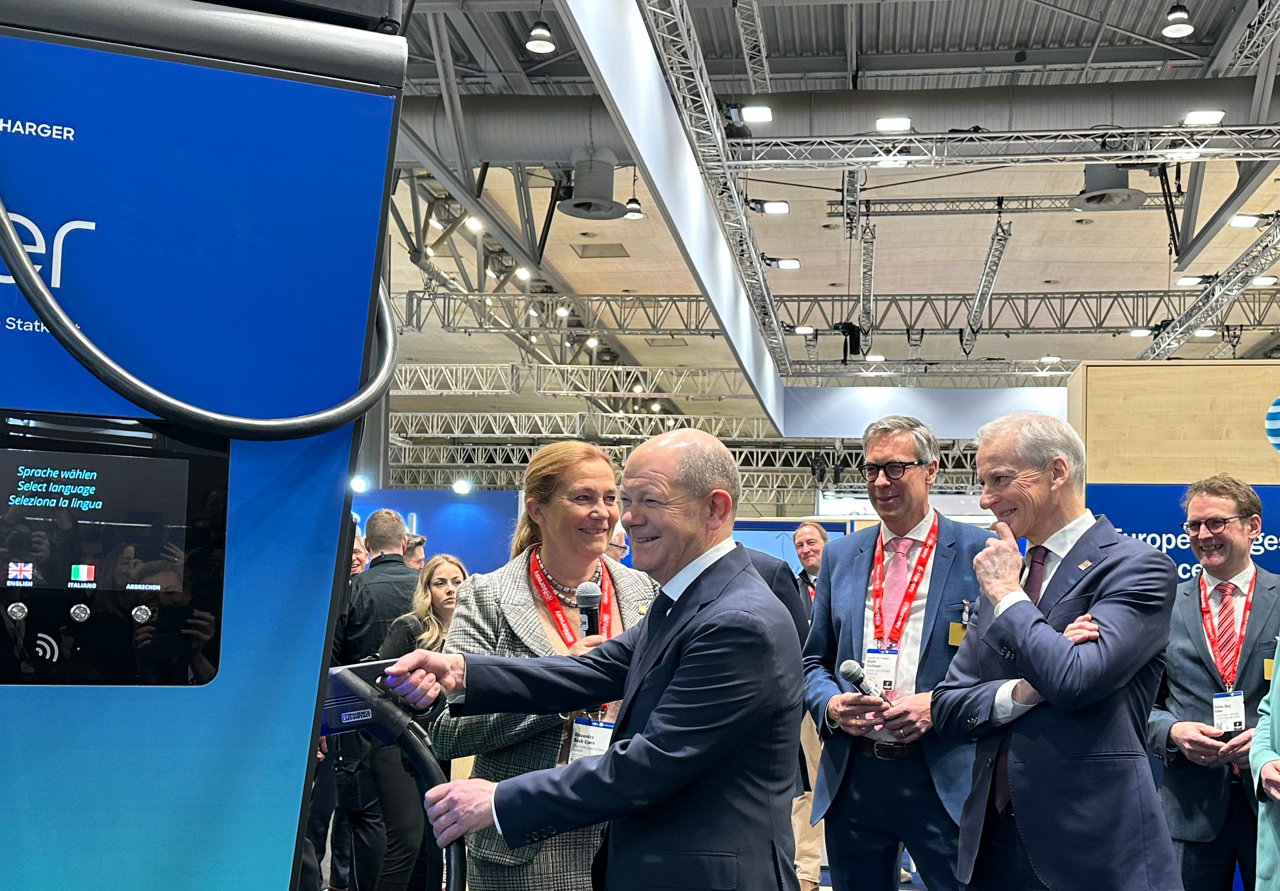Countries
Statkraft at Hannover Messe – Taking part in pioneering the green industrial transition
At the Hannover Messe, Statkraft highlights how the company, through activities in wind, solar, batteries, hydrogen, hydropwer generation and in energy trading, is a 360 degrees contributor to the green industrial transition in Europe and beyond.
Statkraft has been making clean energy possible for over a century and continues to lead the way towards a carbon free future. “Pioneering the green industrial transition” is the topic of the Hannover industry fair where Norway is partner country and Statkraft has a main role at the Norwegian business pavilion.
− Statkraft has ambitious plans to contribute to the green energy transition. We will continue our growth in renewables – in solar, hydropower onshore and offshore wind, and battery storage across Europe. We will also continue to explore new business opportunities such as hydrogen, driving the European energy transition further. When the stakes are high, our ambitions and strategies must follow, says Jürgen Tzschoppe, Executive Vice President of Statkraft, representing the company at the fair.
Statkraft is a vocal advocate of close energy collaboration in Europe and will contribute to developing green industrial partnerships in our key markets. Our projects will help reduce emission, but also help strengthen energy security and more resilient green industrial value chains, Tzschoppe says.

From left: Alexandra Bech Gjørv, Chair of Statkraft board;Olaf Scholz, Chansellor of Germany; Jürgen Tzschoppe, Statkraft EVP New Energy Solutions, Jonas Gahr Støre, Norwegian prime minister, Statkraft SVP Germany, Stefan-Jörg Göbel.
Supporting German industry’s climate targets
Germany is a core market for Statkraft and this year the company celebrates 25 years in the country. Statkraft has succeeded in its strategic growth in renewables, with its deep market competence and having shown that renewables are profitable. In addition, the company contributes to decarbonizing German industry through its activities.
− As a major contributor to the energy transition, we warmly welcome a deeper energy cooperation between Norway and Germany. We see both countries as standing firm on market cooperation and that both recognise how crucial renewable energy is for climate, security, and industry, says Tzschoppe.
Statkraft is a leading supplier of green energy to German industry partners. The power Statkraft provides to German industry between 2021 and 2034 from Germany-based solar and wind assets, will save approx. a total of 8 million tons of CO2 emissions equivalents. This equals 7 percent of the emissions of the German industry sector in 2022 and is a significant contribution to the green industrial transition.1
In addition, Statkraft supplies from 2021 through 2035 17 TWh of green electricity to German industry via baseload and spot PPAs from various technologies and geographies – thereby contributing to a further reduction of more than 13.6 million tons of CO2 equivalents.
In total, this corresponds to a saving of over 21 million tons of CO2 equivalents - and thus almost 20% of the total amount of emissions from German industry in 2022.
In Germany, market activities form one of the core activities of Statkraft’s operations.
Statkraft’s activity contributes to the growth of renewables in the German market, amongst others, through power purchase agreements for subsidy-free and post-EEG wind and solar plants.
By offering power purchasing agreements, Statkraft contributes to decarbonisation of the German industry. As an example, the company just announced a new agreement with Deutsche Bahn, where Statkraft commits to supplying energy from its German hydropower plants along the Weser River and third-party wind farms for the next 10 years, supporting Deutsche Bahn to halve their emissions by 2030 and be climate neutral by 2040.
To integrate the renewables portfolio that Statkraft manages for third parties, the company uses a virtual power plant. Statkraft connects all renewable assets – be it wind or solar - that are spread geographically into a virtual plant, which lets it bundle them into one large-scale and reliable supplier. The installed capacity of Statkraft’s virtual power plant equals the installed capacity of five nuclear power stations. The average power generated in one year alone could almost supply a city the size of Berlin.
Statkraft also operates ten hydropower plants, five gas power stations and two biomass power plants, and a battery energy storage system in Germany. Thus, statkraft is contributing to renewing the energy system by providing flexibility with its assets. Statkraft built its first solar power plant in 2018 and operates a 600 MW onshore wind power portfolio, and is amongst the top ten onshore wind farm operators in Germany.
A champion of green hydrogen
Statkraft’s goal is to become a leading green hydrogen player in Germany – and Europe, and to establish an industrial and wholesale position in selected markets.
− We strongly believe in green hydrogen and its important role in decarbonizing transportation and industry. Green hydrogen is still in its infancy, and we expect cost to come down from high levels with the scale up of the technology. This will depend on well-designed regulatory measures, says Jürgen Tzschoppe.
Statkraft will contribute to developing green hydrogen in two ways: Development in Germany through its project in Emden, a 10 MW pilot electrolyser that should provide green hydrogen for transportation and later expanding to industry. In Northern Norway Statkraft is also working on a project– Narvik – to export ammonia to Germany.





















